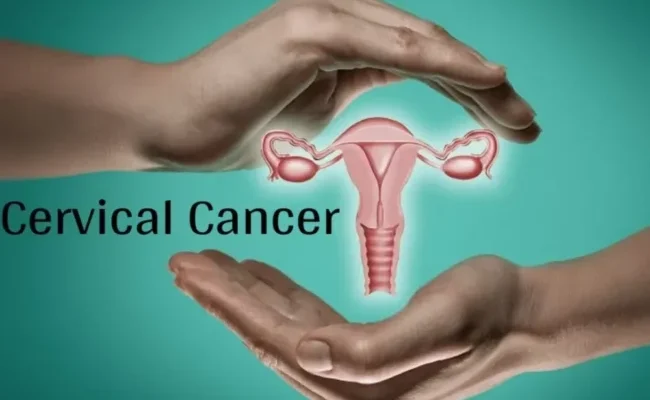
Women and girls have been admonished to go for regular screening as a panacea for early detection and successful treatment of cervical cancer.
This was the advice given by medical experts during a Zoom meeting organised by the AIDS Healthcare Foundation (AHF) in Nigeria and its partners, the John Hopkins Programme for International Education in Gynaecology and Obstetrics (JHPIEGO), the National Agency for the Control of AIDS (NACA), the Institute of Human Virology, Nigeria (IHVN), and GirlsAct, on the theme “Understanding Cervical Cancer and Its Intersection with HIV.”

The Zoom meeting held on Sunday had over 160 participants across the country.
The Advocacy and Marketing Manager of AHF Nigeria, Steve Aborisade, explained that the meeting was organised to acquaint participants with information on the relationship between HIV and cervical cancer, discuss preventive measures, and share the latest research and strategies for effective management and support.
He added that cervical cancer and HIV are significant public health issues that affect women, particularly in resource-limited settings.
In their contributions, Dr George Ikaraoha, Mrs Menakaya Atenchong, Nurse Omoseke Bamijoko, and Dr Lois Maji urged women, especially young women, to prioritise their health by going for early screening, accessing vaccines, and changing lifestyles that expose them to HPV disease.
Dr. George Ikaraoha, the Pre Exposure Prophylaxis (PREP) and Cervical Cancer Prevention Programme (CECAP) Advisor with JHPIEGO identified key factors contributing to cervical cancer development to include human papillomavirus (HPV) infection, early sexual activity and multiple sexual partners, smoking, and immune system deficiency.
He also identified long-term use of oral contraceptives, having many children, socio-economic factors like lack of access to healthcare facilities, poverty and the inability of women and girls to afford healthcare services, a lack of education and access to the right information, and cultural beliefs like stigma.
Dr. Ikaraoha said that regular screening is crucial as it allows for the detection and treatment of precancerous conditions before they develop into cervical cancer.
The PREP and CECAP advisors said that by understanding the risk factors and adhering to recommended screening schedules, women can significantly reduce their risk of developing cervical cancer and improve their chances of successful treatment if cancer does occur.
Nurse Omoseke Bamijoko, an ART nurse with AHF, who also harped on the importance of early diagnosis, said cervical cancer can be treated if discovered early.
She said women living with HIV are more prone to cervical cancer and, as such, should go for screening every three years, while others can be screened every five years.
Bamijoko advised the Nigerian public to stop stigmatising victims to enable them to access health care, just as Omoseke urged women and girls to see a health professional when they see symptoms like unusual bleeding between periods, after menopause or after sexual intercourse, an increase in foul-smelling vaginal discharge, persistent pain in the back, leg, or pelvis, weight loss, fatigue and loss of appetite, vaginal discomfort, and swelling in the legs, among others.
A senior nursing officer with AHF, Mrs Menakaya Atenchong, and Dr. Lois Maji, a programmeme officer with IHVN, advised young girls to take advantage of the federal government’s programmeme and get themselves screened, as well as get vaccinated.
They noted that early detection would not only reduce the burden of cervical cancer in Nigeria but would also prevent genital warts and other genital growths in women and girls.
The speakers also called for public education and awareness programmes, affordable healthcare services, the engagement of community leaders, and utilising culturally sensitive approaches to help address cultural barriers and stigma. Strengthening healthcare systems can be achieved by investing in healthcare infrastructure, particularly in rural and low-income areas, to enhance the availability and quality of cervical cancer screening and treatment services.
.
ALSO READ THESE TOP STORIES FROM NIGERIAN TRIBUNE








